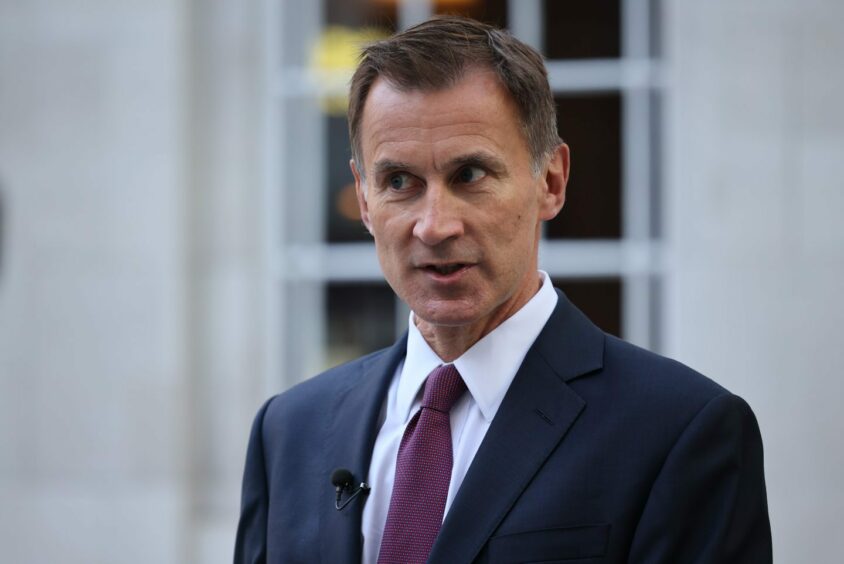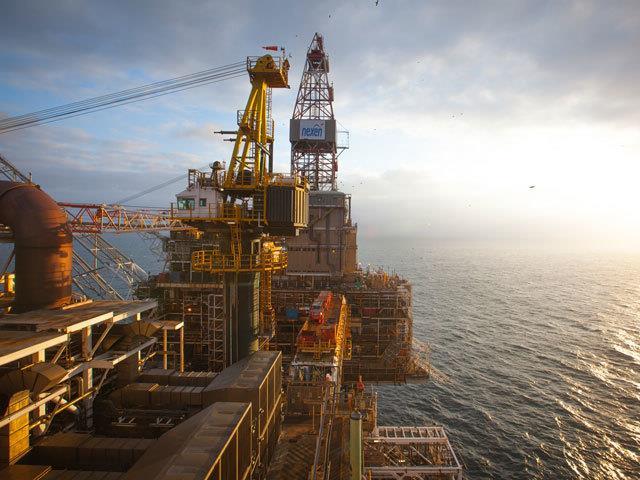
The UK Government is mulling an increase to the North Sea windfall tax to 35%, Energy Voice understands, in a move which executives said threatens billions of pounds of investment.
Industry sources who have been in talks with government said the hike, which represents a 10% bump on its original rate, is being tested with MPs.
Trade body Offshore Energies UK (OEUK) responded with outrage to the “threat” which it said would see companies having to “reconsider investment plans worth billions”.
Industry sources said the rate may only be increased to 30%, as has previously been trailed in the media, but the higher number looks to be preferred by government.
They added that the tax will almost certainly be extended to 2028, beyond its current 2025 sunset clause.
It comes as chancellor Jeremy Hunt seeks to plug a reported £50bn fiscal black hole during the Autumn Budget on Thursday.
Increasing the levy to 35% would take the headline rate of tax for the industry up to a total of 75% – OEUK pointed out that the North Sea was the heaviest-taxed industrial sector in the country even before the levy was introduced.
Senior executives in the oil and gas industry said that it is crucial that any extension to the windfall tax – known as the Energy Profits Levy (EPL) – maintains investment incentives.
Meanwhile the Times newspaper reports that the levy will be extended to electricity generators for the first time and raise an extra £1bn a year, netting a total of £45bn for the Treasury.
The original EPL, implemented by Rishi Sunak while he was chancellor in May, imposed a 25% increase to the headline tax rate on North Sea firms, to a total of 65%.
However this included a 91% investment incentive – so firms got 91 pence back for every £1 they invested in the sector.
‘Completely taken aback by this’

Sources said it is key that this incentive is protected and that there are no further changes to the EPL after Thursday in order to ensure investors can have confidence to push ahead with North Sea developments.
OEUK underlined that the government cannot tax overseas profits – the likes of which have bolstered the results of oil giants like Shell and BP – so if UK production declines, so will the taxable income.
A spokesperson said: “We’re completely taken aback by this, coming just days before the Chancellor gives his fiscal statement. Our industry plays a critical role in providing reliable and responsible supplies of energy to the UK, with all the benefits that brings in generating taxes, secure energy and jobs for UK workers.
“Imposing sudden extra taxes will make it even harder for these companies to invest in UK energy production – both the gas and oil we need today, and the wind, hydrogen and other low-carbon energies we need to reach net zero by 2050.
“Driving investment out of UK waters into other countries will increase reliance on imported energy, reduce the tax flow to the Exchequer, and make it even harder to increase our domestic production of lower-carbon energies.
“We need a diverse range of offshore operator and supply chain companies with the skills and people to build the low-carbon energy future we all want to see. It deeply concerns us that that the complexity of the UK offshore energy sector is not being considered when we are on the cusp of such an important transition.”
A spokesperson for the Treasury said: “Our permanent oil and gas tax regime is globally competitive and our approach to taxing profits from oil and gas exploration balances attracting investment with ensuring a fair return for the nation for the use of its resources.
“That is why the more investment a firm makes into the UK, the less tax they will pay under rules within our Energy Profits Levy, which is expected to raise £17 billion this year and the next to help fund cost of living support for eight million people.”
Fiscally unstable
Several industry figures have, in recent days, underlined that oil and gas projects have an investment cycle of several years, with the political uncertainty on the windfall tax being a major barrier to investment.
Gilad Myerson, chairman of Ithaca Energy, told EV this week that it was the “biggest question mark” for major projects like Cambo and Rosebank in the West of Shetland being progressed.
Brindex, a group of North Sea producers which does not include oil majors, wrote to Jeremy Hunt this week, describing the UK as one of the most “fiscally unstable” places to do business.
Those firms, not bolstered by the global profits of oil majors, highlighted that the tax can disproportionately hit some smaller companies, especially those without investment pipelines to benefit from the incentives.
Inflation and the surging profits of oil giants like Shell and BP have increased the political pressure to ramp up taxes, though their profits are not dominantly from the UK.
Last week BP, reporting its results for the first nine months of the year at $22.8bn, said 15% of its earnings were from the UK.
Shell conceded it has not paid anything in windfall tax during Q3 thanks to the incentives.
This week IOG, a small gas producer in the southern North Sea, wrote to Jeremy Hunt to implement a “small fields allowance” for better recognition of the difference between them and oil majors.
Recommended for you

